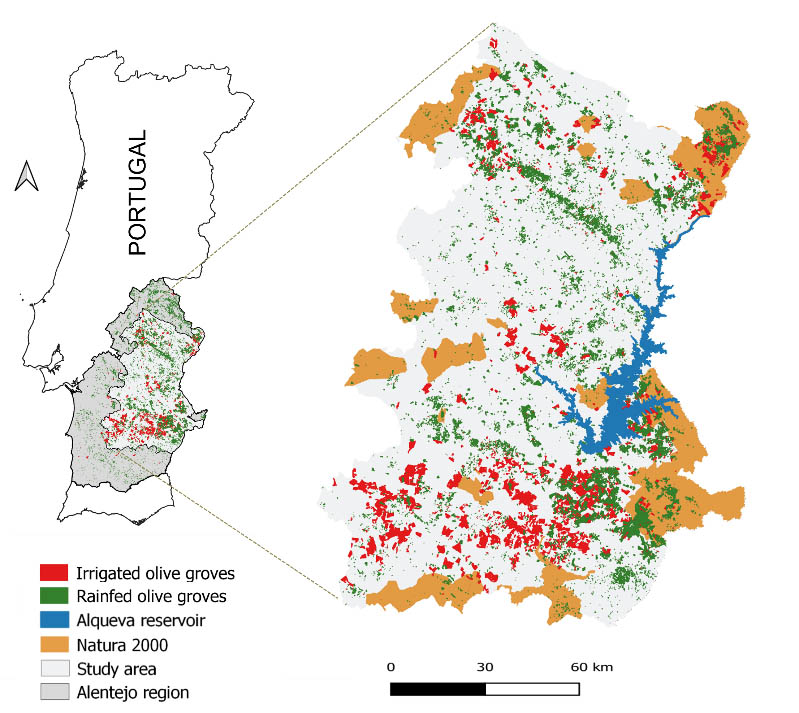A new study by Rui Morgado and colleagues is now available focussing on the drivers, land-use dynamics and biodiversity impacts of olive farming intensification, using the Alentejo region as a study case (link for full-text access: https://authors.elsevier.com/a/1f2pEcUG5OuAC)
Over the last 30 years, olive farming has experienced a fast and large-scale intensification process across its Mediterranean range, that is reshaping Mediterranean farmland landscapes with associated impacts on biodiversity and ecosystem services. In this study, the authors analysed the spatial patterns of irrigated olive grove expansion in Alentejo (Southern Portugal) between 1990 and 2017, investigating the drivers, the land-cover dynamics and the potential biodiversity impacts of that process. They found that the expansion was mostly made at the expenses of open rainfed annual crops (63%) and, to a lesser degree, of traditional rainfed olive groves (21%). Change was mainly driven by the combined effect of the availability of public irrigation water and sufficiently large farms, although other factors related to legal constraints to land-use change, biophysical context and previous land management were also involved. They also show that during this period the land cover transitions leading to intensive olive farming were the most harmful for local important biodiversity values (open farmland birds of conservation concern), when compared to alternative land cover change pathways. By providing a quantitative insight into the underlying mechanisms and environmental consequences of the olive farming intensification process currently affecting biodiversity-rich Mediterranean farmland landscapes, this study provides valuable information that can be used by policy makers to better plan and manage this on-going expansion.
Wednesday, 11 May 2022





